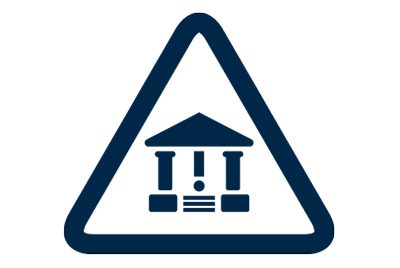The Latest on the NJ BAIT
–
March 23, 2022

March 23, 2022, Update
The New Jersey Division of Taxation has provided answers to several recent questions about the New Jersey Business Alternative Income Tax (BAIT):
- The Division’s website only references New York and Connecticut as being “substantially equivalent” for claiming a credit for PTE taxes paid to other states. Are those the only substantially equivalent states?
The NJCPA reached out to the Division, and our contact said “states with substantially similar PTE tax treatment should receive credit.” The Division is working on providing more public information on their website.
- For a partnership having a fiscal year of 10/1/21-9/30/22 and partners with a calendar year end of 12/31/22, will/can the new BAIT law apply?
The revisions to the BAIT law are effective as of Jan. 1, 2022, and therefore do not apply to a partnership with a fiscal year of 10/1/21–9/30/22. A partnership with a fiscal year of 10/1/21–9/30/22 will file a 2021 PTE-100. Partners with a calendar year end of 12/31/22 will claim credit for their share of the 2021 BAIT on their 2022 New Jersey tax returns.
- Assume a PTE filed its 2021 BAIT return on March 1, 2022. When filing the return, the PTE has an overpayment that it credits forward to the 2022 tax year. At the time of filing the return, the PTE has not made a BAIT election for 2022 (assume the 2022 BAIT election will be made in February 2023). Does the Division expect any issues with getting the overpayment credited to the 2022 tax year? If so, it would appear prudent to make the 2022 BAIT election before filing the 2021 BAIT return and, if needed, revoke the election if it is not ultimately desired.
A pass-through entity must file a BAIT Election prior to making a BAIT payment or filing a BAIT return. If a pass-through entity wishes to credit all or a part of its 2021 PTE-100 overpayment to its 2022 tax year, it would be prudent for the pass-through entity to file its 2022 BAIT Election prior to filing its 2021 PTE-100. A pass-through entity can electronically revoke its BAIT Election on or before the original due date of the entity’s PTE-100 form (e.g., March 15 for calendar year filers).
- Furthermore, if the 2021 PTE 100 is on extension and subsequently upon filing applies an overpayment to 2022, does the election for the 2022 BAIT need to be made at the time of extension or just by the time the actual filing occurs, assuming a properly extended return?
The 2022 BAIT Election does not have to be made at the time of filing its 2021 PTE-200-T but must be made prior to filing its 2021 PTE-100.
Learn more about the BAIT at our May 3 webinar with Alan Sobel and Karen Henderson.
March 15, 2022, Update
The New Jersey Division of Taxation has extended the due date for the following forms from March 15 to June 15, 2022:
- 2021 PTE Election
- 2021 PTE-100 Tax Return
- 2021 PTE-200-T Extension of Time to File
- 2021 Revocation forms
- 2022 Estimated Payments
January 18, 2022, Update
To rectify the implementation issues with New Jersey’s Business Alternative Income Tax (BAIT), a clean-up bill was drafted which has been signed by Governor Murphy. The bill includes the following changes which are effective Jan. 1, 2022:
- It modifies how the optional tax is calculated so that more income is subject to the tax, thereby allowing a larger credit to be obtained for paying the optional tax.
- It changes the offsetting tax credit structure and permitted uses of the credits so that the credits are more generous.
- The tax brackets are updated for the BAIT to better align with the most recent changes to the state’s gross income tax brackets
- The treatment of overpayments of tax and excessive credits are modified so that they can be applied to tax liability in the successive year.
The bill also provides that entities will not be required to make a payment on the share of the income of each nonresident entity owner if the entity owner expects to get the money back in the form of a tax credit as a result of the entity paying the optional entity-level tax.
Apportionment of income
Additionally, we've received a few questions about the state changing the method of apportioning income of an S corporation from the three-factor formula to the single-factor formula.
The Division of Taxation has confirmed that, for tax year 2021, an S corporation will have the option to use three-factor on NJ-NR-A for purpose of the BAIT.
The Division's website guidance regarding important BAIT updates for tax year 2021 will be posted shortly. Please check back with the Division's website periodically.
Practitioner assistance and links
June 11-14, 2024Atlantic City